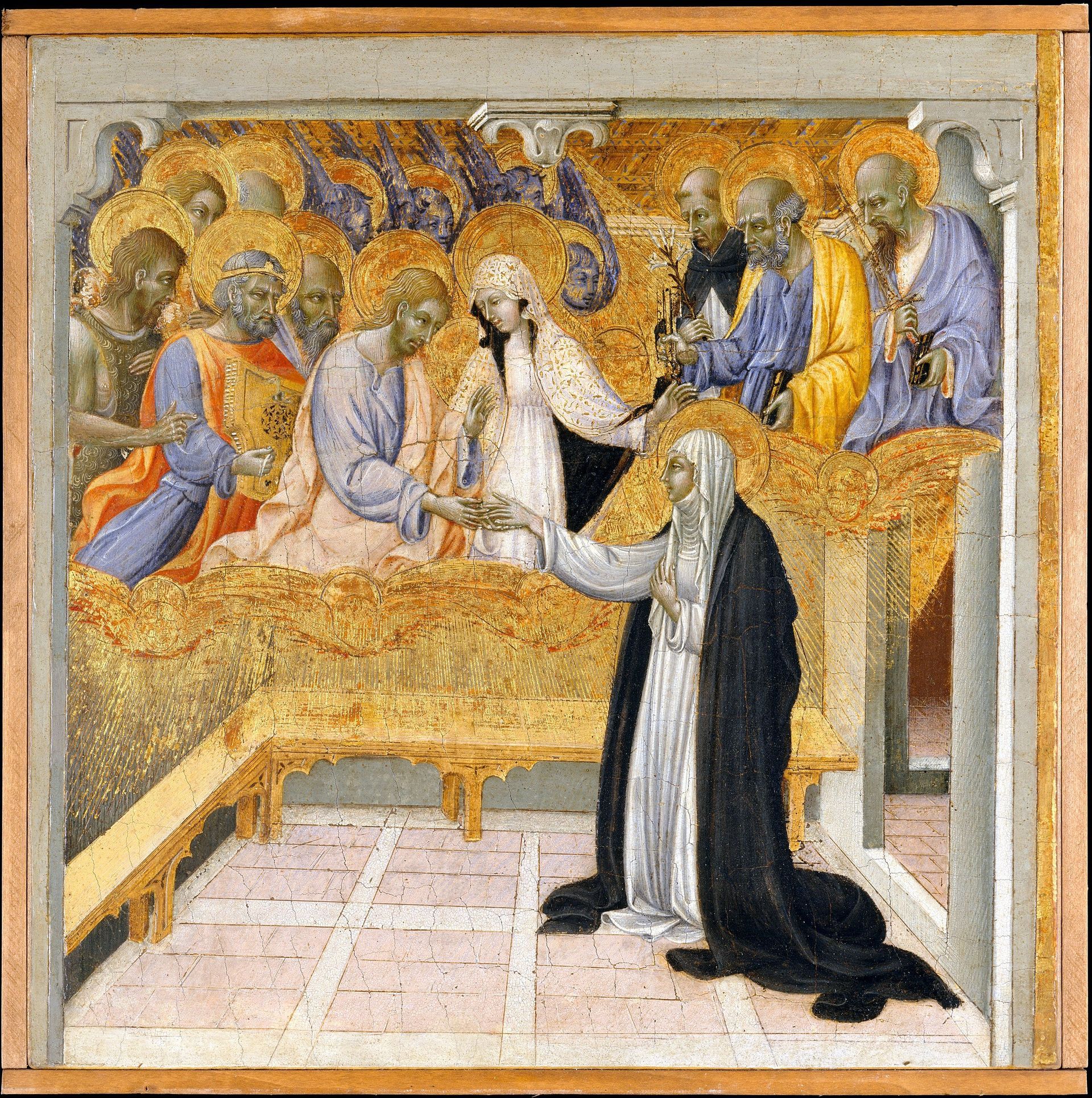Message of Abbot Paul - Saturday 29th April 2023
Abbot Paul • April 29, 2023

Today is the feast day of St Catherine of Siena, the 14th century Italian mystic, activist, writer and theologian, Patron of Europe and Doctor of the Church, who died on this day in the year 1380, just a month after her 33rd birthday. Apart from Our Lady, no other woman at any time has exerted so great an influence in so many spheres of international life as Catherine Benincasa. Her influence on Italian language and literature alone is inestimable. Although the feast day Mass has special readings, I propose sticking with John, the reading for the feria, as it brings with it the conclusion to chapter 6, the discourse on the bread of life (Jn 6: 60-69). Yesterday we heard Jesus say, “I am the living bread that came down from heaven. If anyone eats of this bread, he will live forever. And the bread that I will give for the life of the world is my flesh.” (Jn 6: 51) The Jews argue among themselves as to what this could possibly mean, which leads Jesus to go even further and say, “Truly, truly, I say to you, unless you eat the flesh of the Son of Man and drink his blood, you have no life in you. Whoever feeds on my flesh and drinks my blood has eternal life, and I will raise him up on the last day. For my flesh is true food, and my blood is true drink. Whoever feeds on my flesh and drinks my blood abides in me, and I in him.” This is where we pick up the story.
Many of his followers are shocked by his words and perturbed by their meaning. They call it, “Intolerable language.” They find the words of Jesus quite unacceptable. Jesus knew that they were thinking like this and he says, “Does this upset you? What if you should see the Son of Man ascend to where he was before?”
“It is the spirit that gives life,
the flesh has nothing to offer.
The words I have spoken to you are spirit
and they are life.”
Jesus knows our innermost thoughts. He knows what is in our minds and in our hearts. He also knows who would betray him. John comments that, “After this, many of his disciples left him and stopped going with him.” Rather like Caesarea Philippi in the Synoptics, this is the pivotal moment in John, when his disciples have to decide whether to go on with Jesus or not. It should also be a moment of decision for us, his disciples today. Jesus asks the Twelve, as he asks you and me, “What about you, do you want to go away too?” It is Simon Peter who answers for us, “Lord, who shall we go to? You have the message of eternal life, and we believe; we know that you are the Holy One of God.” I can’t remember the number of times I’ve said to Jesus, “Lord, to whom shall we go? Who else is there? You, and you alone have the word of eternal life.”









